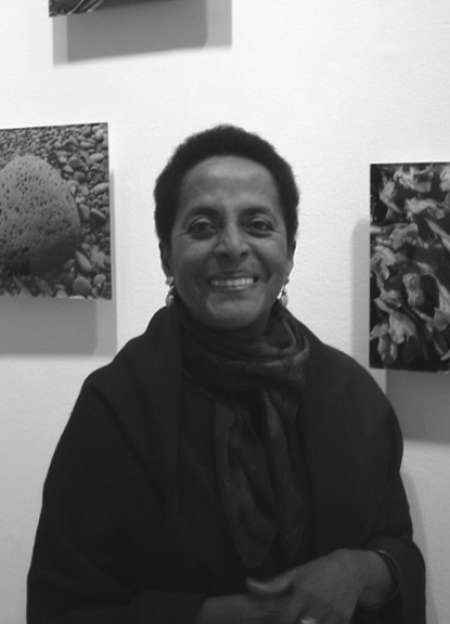Susana Baca
Website: susanabaca.com
Singer, Composer, Historian: Peru
A quiet spring day in the year 2000; just a solitary motorist and the mass of trees lining a narrow, curvy, quiet road. A somewhat random mid-range frequency on the radio suddenly sent out what was to become an indelible musical memory:
Curious percussive rhythm; a sensuous groan of guitar strings; then an enchanting voice—a deeply feminine voice, pleading with someone named Valentin. But too soon the melody began to fade. Frantically I searched for a pen and a scrap of paper. Silence. Waiting. Then a name: Susana Baca. Knee pressed against steering wheel, I scribbled it down.
Almost six years after that drive I entered a gallery and approached Susana on the evening before she’d perform original music to open a collaboration of art, sculpture, video, and music with compatriot artist Grimanesa Amorós. Before the week would end she’d leave New York to begin a tour of European cities, all throughout the month of April and beyond—tip-toeing from one country to another, sometimes literally from one day to the next. Switzerland, Italy, Germany, Portugal, Spain, Sweden, Finland, France, the UK.
“I’ve been performing throughout Europe for a long time, so I’m very much accustomed to it and familiar with the different cities. I’ve done a lot of exploring, so now when I go to each city I don’t really tour the streets as much. I perform and then just hang out and relax.”
To see Susana perform is to see a child much younger and a woman of almost ancient times, both of whom can tell such engaging stories through a music defined at times by simplicity and light-hearted percussion and at other times by ethereal melodies and voicings of incredible complexity.
“My performances…all different people are attracted to them. They will leave with a smile. Even if some songs are very harsh or painful, they leave happy. They feel free. Relieved. Refreshed.”
It speaks volumes about Afro-Peruvian history, the revival of which Susana is an integral part. I wondered what it was that sparked her interest in her roots. She seemed surprised; almost confused.
“Since I was little I was surrounded by the music and the traditional instruments. My father played the guitar and my mother was a dancer. We would play on boxes—or dump clothes out of a drawer and use the drawer as percussion. I grew up in the middle of all this history. So I’ve always had that environment. There was no distinct 'spark' that hit me when I was older. It was just always there."
"However, in the early 1970’s I went to Europe. I would sing my songs and people loved them, but didn’t know about the music—where it was from. They hadn’t been exposed to it. That pushed me to learn more about it., so I could further revive the history. First I asked my mother. I interviewed Peruvian singers. And the new CD I’m coming out with (Travesias)—I’ve brought songs and poetry of the past. I felt very much youthful after recording it."
For more than twenty years she's been researching and reviving the stories of Peru, touring the world, and introducing everyone to the history through her music and that incredible voice.
Before I met musician and songwriter Piers Faccini, I discovered that he too had a fondness for Susana:
“To me the voice is the greatest instrument. Why do I love Susana Baca? Because she’s got this extraordinary instrument -- her voice -- which can carry all this emotion. It’s about tone, about rhythm, pace, quality; the texture of that voice. So the voice and all that it encompasses -- I have this incredible curiosity for it.”
A memory:
 Susana Baca Susana Baca |
My dear friend Brittny and I were directed to our seats, which were literally touching the small, half moon-shaped stage. We remarked at Susana's bare feet and smiled. As the first set began that night, Susana's bassist picked up a bow and began to stroke the strings of his instrument. And it was as if Susana somehow felt the back-and-forth motions of the bow behind her and began to sway precisely in time to it. My heart swelled for the next moment, watching them both move. I took Brittny's hand in mine and didn't let go for the rest of the evening.
I'll never forget that.
{october 2006}
All stories are copyright of Gregory Koutrouby and A Thousand Stories unless otherwise noted.
